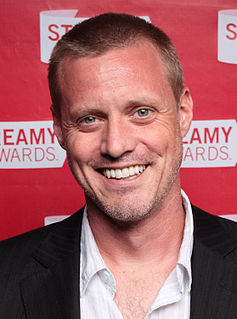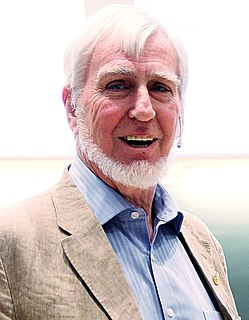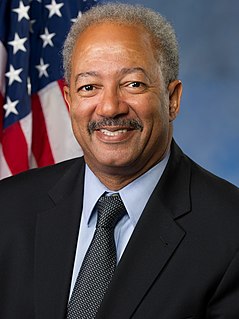Цитата Зе Франка
Я изучал неврологию на клеточном уровне, поэтому изучал обучение и память в зрительной коре крыс. Нейронаука в основном познакомила меня с образом мышления — об экспериментах, о том, что вы считаете правдой и как вы можете это доказать, — и о том, как методично подходить к вещам.
Связанные цитаты
Первое, чем я заинтересовался в рамках «Мозгового штурма», была нейробиология, и это все равно, что сказать, что вас интересует вселенная. Так что, в конце концов, я понял, что если я собираюсь справиться с этим в вымышленном формате, мне придется пройти подраздел нейробиологии, и это оказалось использованием нейробиологии в уголовных судах.
То, что продемонстрировал Уоркольер, совместимо с тем, что современная когнитивная нейронаука узнала о том, как мозг конструирует зрительные образы. Это означает, что телепатические восприятия всплывают в сознании из бессознательного и, вероятно, обрабатываются в мозгу так же, как мы создаем образы во сне. Таким образом, телепатические «образы» гораздо менее надежны, чем образы, управляемые органами чувств, и подвержены искажениям.
Кино — это визуальный язык, и вы всегда ищете визуальные метафоры для вещей. Знаешь, если бы я писал пьесу о Говарде Хьюзе, я мог бы попросить его произнести монолог о том, как он боится прикоснуться к дверной ручке. Но на экране, вы знаете, работа с Марти Скорсезе в «Авиаторе» стала серией изображений, рассказывающих историю.
Я все думаю, что мой отец дал мне Тургенева, а потом в какой-то момент понимаю: о, это ложное воспоминание. Я имею в виду, это одна из вещей, которые меня интересуют в мемуарах. Это должно быть как можно больше о том, как мы помним, включая ложные воспоминания и осознание того, что у человека ложные воспоминания. Это своего рода интересный способ наслоения всего опыта воспоминаний.
Обстоятельства не толкают и не тянут. Это ежедневные уроки, которые нужно изучать и извлекать из них новые знания и мудрость. Применяемые знания и мудрость принесут светлое завтра. Человек в депрессии тратит слишком много времени на размышления о том, как обстоят дела сейчас, и недостаточно времени на размышления о том, как он хочет, чтобы все было.
Мне чрезвычайно интересно увидеть, как нейронаука может привести нас к пониманию этих сложностей человеческого мозга и того, как он работает, но я действительно думаю, что могут быть пределы с точки зрения того, что наука может сказать нам о том, что в любом случае означает добро и зло, а что это за понятия?
Безусловно, есть вещи, в которые стоит поверить. Я верю в братство людей и уникальность личности. Но если вы попросите меня доказать, во что я верю, я не смогу. Вы знаете, что они верны, но можете провести всю жизнь, не сумев доказать их. Ум может продвигаться лишь до тех пор, пока он знает и может доказать. Наступает момент, когда разум совершает скачок — назовите это интуицией или как хотите — и выходит на более высокий план знания, но никогда не может доказать, как он туда попал. Все великие открытия предполагали такой скачок.
Когда дело доходит до того, как неврология может помочь широкой публике, самое худшее, когда мы делаем успехи, скажем, в осознанности, а затем решаем, что каждый потенциально может придумать свой способ вылечить себя или разработать свои собственные психо-нейро-иммунные механизмы для этого. повышение защиты от рака.


































